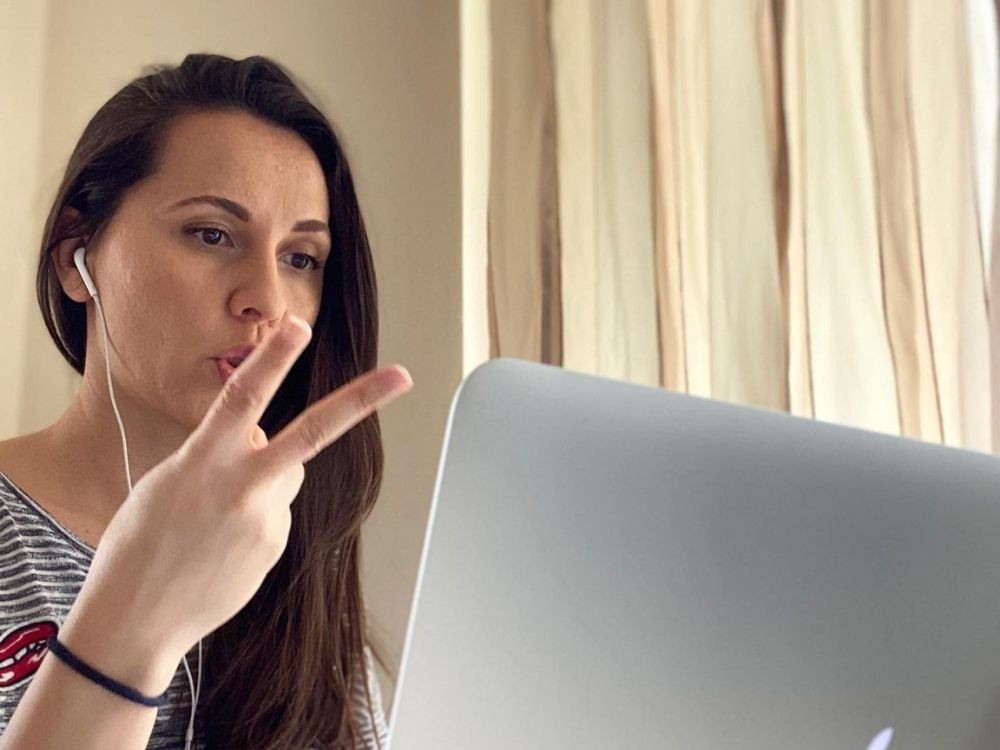Today's world is inextricably linked to technology and more and more children are spending time in front of electronic devices, whether they use them for learning or entertainment. This is also shown by statistics in Bulgaria, as data for the past two years are alarming.
"According to the latest data, 83% of Bulgarian children spend their time watching a display device actively or passively for at least 2 hours a day during weekends, as during the week they spend 48% of their time in front of the screen, which exceeds the recommended pediatric dose," says Yana Ilcheva. speech therapist, consultant and therapist who works with children with developmental problems.
Delayed speech, emotional disorders, impaired concentration, frequent cases of violence - these are just some of the problems that arise as a result of the use of electronic devices by children. Is the situation really that serious?

"Yes, all this is an interconnected complex, the foundations of which are laid at an early age. The display slows down the development of meaningful speech, communicative behavior cannot be developed. For children, real playing is extremely important as it gives life experience, develops imagination, emotional maturity and awareness," Yana Ilcheva says and gives examples from her practice of the opposite: a child who can not turn the pages of a book, but slides fingers on the page, or a child who has not built their identity and likens themselves to a cartoon character. It is no coincidence that in recent years such terms as Electronic Screen Syndrome and ‘generation of alienation’ have emerged.”
"Excessive use of electronic screens results in over-stimulation of the nervous system, changes in the biochemical processes in the brain and stops building of the right neurological connections. Working memory as well as creative thinking do not develop well. Unfortunately, more and more children have cognitive and learning difficulties," Yana Ilcheva says.

Last year, children in Bulgaria finished school remotely and at the moment upper-grade students still study online. How will distance learning affect Bulgarian children?
"The consequences are yet to be explored. Isolation and screen time are most detrimental to first graders and children with developmental problems. Learning difficulties are also increasing because students are lagging behind. In terms of social skills, I think they will catch up by going back to class. In the future, difficulties in concentration, behavior, auditory attention, fine motor skills will be more common. In my opinion, the consequences will be mostly psychological and educational," Yana Ilcheva says.
Technologies limit sensory integration, live connection, the sensation of real communication, movement. But they can also be an additional support when they are purposefully used and dosed:
"There are many educational channels and applications that facilitate the learning process. They can also be used for alternative communication. We cannot isolate children completely, we are all dependent on technology in some form. However, technology should not and cannot replace real life events, communication, practical skills and needs," Yana Ilcheva says in conclusion.

English: Alexander Markov
Photos: archive
Who said Bulgarians were grumpy pessimists? Take a stroll through Sofia's Christmas bazaars and meet the cheerful crowd. The festive decorations, music, merry-go-rounds and stalls overflowing with treats and handmade souvenirs can make the gloomiest..
Bulgarian studies are highly valued at the Bogdan Khmelnitsky State Pedagogical University in the Ukrainian city of Melitopol. So it comes as no surprise that the university is hosting the latest edition of the International Bulgarian Studies Readings,..
"You say you are Bulgarian, but you do not know Bulgarian" – this reproach from officials in Bulgaria has been faced by quite a few by our compatriots from the historical Bulgarian communities around the world. One of them is Bledar Alterziu from..
On December 14 and 15, just days before the Christmas holidays, Plovdiv will once again host EXOTIC EXPO – the Bulgarian professional exhibition for..
The Regional Museum of Natural History-Plovdiv is hosting a three-day "Ice Festival" which will continue until December 15. The festival is dedicated..

+359 2 9336 661
